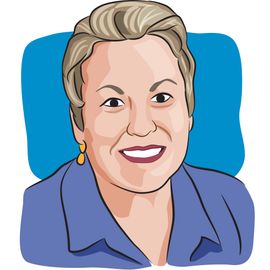- About Us
- Advertise / Support
- Editorial Board
- Contact Us
- CancerNetwork.com
- TargetedOnc.com
- OncLive.com
- OncNursingNews.com
- Terms & Conditions
- Privacy
- Do Not Sell My Information
- Washington My Health My Data
© 2025 MJH Life Sciences™ and CURE - Oncology & Cancer News for Patients & Caregivers. All rights reserved.
What’s Next for My Life?

Kathy LaTour is a breast cancer survivor, author of The Breast Cancer Companion and co-founder of CURE magazine. While cancer did not take her life, she has given it willingly to educate, empower and enlighten the newly diagnosed and those who care for them.
For cancer patients—often caught up in the whirlwind that is treatment—writing can center you and help you focus as you describe what’s happening in your life.
Writing helps. Whether it’s the cognitive process of deciding what to say in order to put sentences on the page or the process of clarifying what somehow cannot be said.
For cancer patients—often caught up in the whirlwind that is treatment—writing can center you and help you focus as you describe what’s happening in your life. For some of us, journaling has been a life-long activity. For others, writing is hard.
What’s Next for My Life? ™ Companion Journal for Cancer Patients is a small spiral journal that provides basic information about where you are while, at the same time, asking you to journal feelings, circle emotions or list out details of treatment. It sounds so simple, but the process of “read it” or “feel it” followed by “write it” can be immensely helpful in clarifying where you are and what you need.
Author Holland De Long, also a breast cancer survivor, is a cancer coach, an emerging specialty that provides cancer patients someone akin to a life coach for getting through cancer. Her hundreds of hours with patients has given her a sense of what’s important, as well as what order to ask questions and which questions to ask as writing prompts to get readers ready to write.
The chapters span the time from treatment to survivorship, asking such questions as What have people said to you that surprised you? The answer to this question, as those of us who have been there know, could go on for pages. It helps to write them down to see the absurdity of some and the sweetness of others.
The power in writing comes when you look back at answers that asked about where you were at that moment. There are no right or wrong answers—just your answers, which make the words relevant at many levels for the person creating them.
And a final note. Holland De Long uses big type and lots of white space. This may sound like a small detail, but two of the debilitating aspects of being diagnosed with cancer are the inability to read for long periods of time and to concentrate. This little book makes it easy to do both while learning about yourself.
Available at Google Books or at WhatsNextForMyLife.com.
Related Content:



